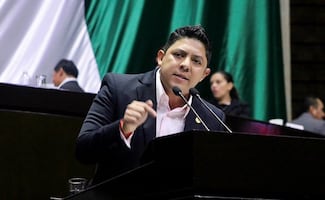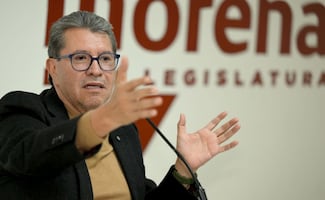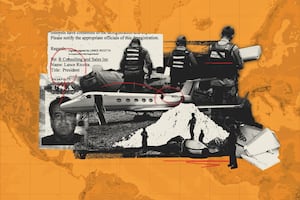Más Información

En SLP nunca ha existido una gobernadora y ahora hay una posibilidad real que así sea, asegura Ricardo Gallardo tras aprobación de "Ley Esposa"

Morena analiza disminución de pluris y elección popular de consejeros del INE: Monreal; serán revisadas en la reforma electoral, dice

Rastro de jets vinculados al narcotráfico lleva a un vendedor en California… y a un punto ciego de la regulación aérea en Estados Unidos

Secretaría Anticorrupción sanciona a dos empresas por buscar contratos con información falsa; imponen multa de miles de pesos

Banxico se despide de 2025 con otro recorte a la tasa de interés; queda en 7% por ajuste de 25 puntos base
The coming weeks will be critical for the reconstruction of Lebanon after the devastating Beirut port explosion , if the Arab country is to avoid deeper instability and the risk of further civil war.
The immediate challenges for the divided Lebanese society , which has taken the streets in order to demand justice, include an impartial and credible investigation into the August 4 disaster. Yet an even more difficult task will be the reform of its dysfunctional sectarian system, without foreign intervention.
With regard to the explosion of 2,750 tons of ammonium nitrate stored in Beirut’s port since 2013 that left more than 200 dead and missing people, a report is expected in the next few days. According to the investigation ordered by Lebanese President Michel Aoun, some 20 officials are under house arrest, while others have had their bank accounts frozen.
A judge has begun questioning Major General Tony Saliba, head of the State Security units responsible for vigilance in the port. Apparently Saliba had compiled a report about the danger of storing the chemical material at the port facilities; he sent a copy to Aoun and Prime Minister Hassan Diab on July 20.
Recommended: Massive blast rocks Lebanon’s capital Beirut
France, which has assumed a leading role in the crisis as the former colonial power, is also investigating the blast. Bruno Foucher, Ambassador to Lebanon , said French officers are operating as part of the judicial probe ordered after a national of the European country was killed in the explosion and others were injured.
For the moment, there is consensus that the catastrophe was caused by an enormous case of negligence and corruption characteristic of the recent Lebanese governments. Elijah J. Magnier and Pepe Escobar, among other journalists specialized in Middle East affairs, have explained the story of the Rhosus , a cargo ship sailing from Georgia to Mozambique detained for inspection by port authorities during a stop in Beirut.
The inspection concluded that Rhosus was unfit to sail; authorities discharged its deadly cargo into Port Warehouse No. 12 and later confiscated it, due to bills unpaid by the ship owner, a shady Russian businessman named Igor Grechushkin, resident of Cyprus.
From 2014 to 2017 at least, a series of letters from customs officials and proposals to get rid of the ammonium nitrate , exporting it or otherwise selling it, were ignored.
However, on August 4 a blacksmith was asked to close holes in the warehouse to prevent potential stealing of the content. He was not informed about the hazardous content, and the need to take precautions to prevent the spread of metal particles that can trigger a fire .
The blacksmith worked for nearly two hours near the ammonium nitrate 1-ton bags labeled “ Nitropril HD ” that were lying on the floor with a leak. Once his job was done, between 16:30 and 17:00 local time, smoke was seen coming from the warehouse.
Negative pressure
Firemen went to the area and at 18:08 the first explosion occurred, followed by a second one over a minute later. After the first blast , a fire ignited generating more heat, enough for the entire depot of ammonium nitrate to blow up and create a vacuum or negative pressure. The pressure from the terrible explosion, the world’s largest non-nuclear since 1945, was heard as far away as Cyprus, more than 190 kilometers to the northwest.
Recommended: Black clouds over Beirut
Ammonium nitrate is generally used for fertiliser production and mine explosives. Its dangers are well known; five years ago, a series of explosions , including one in a container storage depot with the chemical at Tianjin, China, killed 173 people.
The damage extended across half the city, at a cost estimated at USD $15 billion, with 300,000 people now homeless. Beirut’s Governor Marwan Abboud warned of shortages of food, fuel, and medical supplies, as the country imports most of its basic commodities.
Prior to the tragedy, Lebanon was mired in its worst economic crisis , aggravated by the coronavirus pandemic. Once the banking and trading center for the region dubbed “The Switzerland of the Middle East,” the country was in June “spiralling out of control,” warned Michelle Bachelet, United Nations High Commissioner for Human Rights.
While the Lebanese Dinar has lost 80% of its value since October, Bachelet and the World Bank estimated that 45% of the population (six million, including two million refugees) lived below the poverty line, up from 33% before September 2019.
The price of food and basic commodities has risen by at least 50% every month since May; one of three Lebanese is unemployed, and as of April, 75% of the population needed various forms of aid.
The unrest provoked by the crisis and widespread corruption led in October to the fall of Prime Minister Saad Hariri, head of the Future Movement. Considered an ally of France, the United States, and Saudi Arabia, the Sunni Hariri is the son of billionaire and former premier Rafic Hariri, murdered in a car bomb attack in 2005.
During his rule, Rafic Hariri managed to force the withdrawal of Syrian troops from Lebanon, present since the end of the civil war that ravaged the country between 1975 and 1990.
The conflict turned Lebanon into the battleground of rival powers supporting one of several of its 18 religious sects. In 1983, two truck bombs destroyed U.S. and French bases in Beirut, killing more than 300 soldiers and marking the emergence of the Shiite militia Hezbollah as a powerful local force.
While Iran and Syria-backed Hezbollah succeeded in expelling the Israeli army from northern Lebanon in 1984, Hariri gained popularity cementing the reconstruction of the country until his death.
The verdict of the trial in absentia of four Hezbollah defendants allegedly involved in Hariri’s murder was expected in August 7, three days after the port explosion ; it is now scheduled that the special court in The Hague, supported by the UN, will deliver its ruling next Tuesday.
Diab, an engineering professor with no ties to the warlords who have thrived with the sectarian divide of power and the allocation of quotas, was installed as a technocrat to head the government in January.
In contrast to Hezbollah and its allies, who have the majority in Parliament, Christian Maronite and Sunni factions allied with Saad Hariri boycotted his plans, leading to clashes between their followers. In June, Aoun, himself a former Christian warlord who fought the Syrian forces in 1989-1990, warned that the situation could spark another civil war .
In the wake of Beirut’s explosion, Diab, who proposed early parliamentary elections in two months after his resignation on Monday, is also facing the dilemma of negotiating an International Monetary Fund loan which would be subject to improved relations with Saudi Arabia and the West.
Recommended: Lebanon's Government resigns amid outrage over Beirut explosion
Christians, former generals, and the Future Movement opposed to Hezbollah and its alliance with Tehran and Damascus, are calling meanwhile for the formation of an interim “ salvation ” government , potentially headed by the military.
They aim to the participation of bankers and business leaders in order to prepare elections on the basis of a new electoral law within three years. Nevertheless, no one has come up with a realistic alternative for the sectarian sharing of power, when Hezbollah, the Amal Movement , and other Shiite groups represent nearly 42% of the population.
Another disturbing factor is the return of France’s direct intervention in Lebanese internal politics . During his visit to Beirut last week, Macron rejected the idea of early parliamentary elections and requested that the factions joined in “one united government.”
As co-chair of the international conference on assistance to Beirut which pledged USD $300 million in emergency humanitarian aid , Macron stressed that no money for rebuilding will be made available until authorities commit themselves to political and economic reforms.
Recommended: Mexico offers USD $100,000 aid to Lebanon after Beirut deadly explosions
Although he declared that “it is not up to a French president to write your history on your behalf,” the course of events says otherwise. Back in Paris, Macron underscored that if France did not play its part, “other powers may interfere, whether it be Iran, Saudi Arabia or Turkey.”
There are currently at least four French and European Union warships in Beirut’s harbour , including the French amphibious assault ship Tonnerre with 700 soldiers from the elite Foreign Legion.
Lebanon’s geopolitical relevance as the gate of the Levant region cannot be underestimated; in talks with Iran’s President Hassan Rouhani, Macron emphasized the “necessity” to avoid “any outside interference and to support the putting in place of a government which can manage the emergency.”
In the framework of heightened tensions with Turkey in Libya and the Eastern Mediterranean , France is also strengthening its air forces in Cyprus.
For its part, the U.S. is preparing sanctions against Lebanese politicians and business figures in a new attempt to weaken Hezbollah. In the same vein, it is threatening to veto a resolution to extend the UN’s peacekeeping mission in southern Lebanon if its mandate is not changed.
Editing by Sofía Danis
More by Gabriel Moyssen
Noticias según tus intereses
[Publicidad]
[Publicidad]








